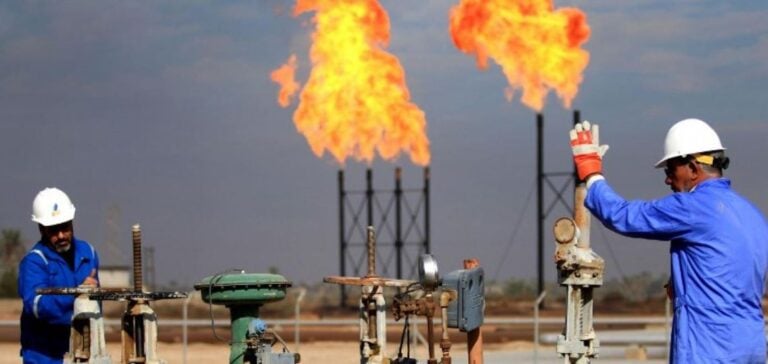TotalEnergies, a major player in the oil and gas sector, has announced the launch of construction for its first flared gas treatment plant in Iraq. This project is part of a strategy to reduce emissions and optimize the use of natural resources. The practice of flaring, common in Iraq, involves burning excess gas associated with oil extraction, resulting in significant pollutant emissions.
The project, named ArtawiGas25, represents a $250 million investment. Once operational, this plant will process 50 million cubic feet (Mcf) of gas per day from the Ratawi oil field. Previously flared gas will now be converted into electricity, supplying the national grid and meeting the energy needs of nearly 200,000 households in the Basra region.
An integrated project within a larger energy vision
ArtawiGas25 is the first phase of the Gas Growth Integrated Project (GGIP), managed by TotalEnergies with its partners Basra Oil Company (30%) and QatarEnergy (25%). This comprehensive investment program, valued at $10 billion, aims to recover flared gas from three oil fields to supply power plants with a combined capacity of 1.5 gigawatts (GW).
The main GGIP plant, scheduled for completion by the end of 2027, will process 300 Mcf of gas daily. Additionally, TotalEnergies plans to construct a solar power plant and a seawater treatment unit to optimize oil production, furthering its transition to a mixed-energy model.
Ambitious environmental and energy goals
The Iraqi government, under Prime Minister Mohammed Shia Al-Sudani, has made combating flaring a national priority. In December, the government committed to utilizing 80% of flared gas by the end of 2025, with the ultimate goal of eliminating the practice by 2027.
The ArtawiGas25 project, expected to be operational by the end of 2025, will significantly contribute to this national effort. TotalEnergies emphasized that this initiative will substantially reduce emissions from flaring at the Ratawi field upon its launch.
By transforming a polluting practice into an opportunity for sustainable energy production, TotalEnergies’ initiative aligns with international environmental commitments and addresses Iraq’s urgent need for reliable energy supply in a resource-rich yet electricity-challenged country.






















